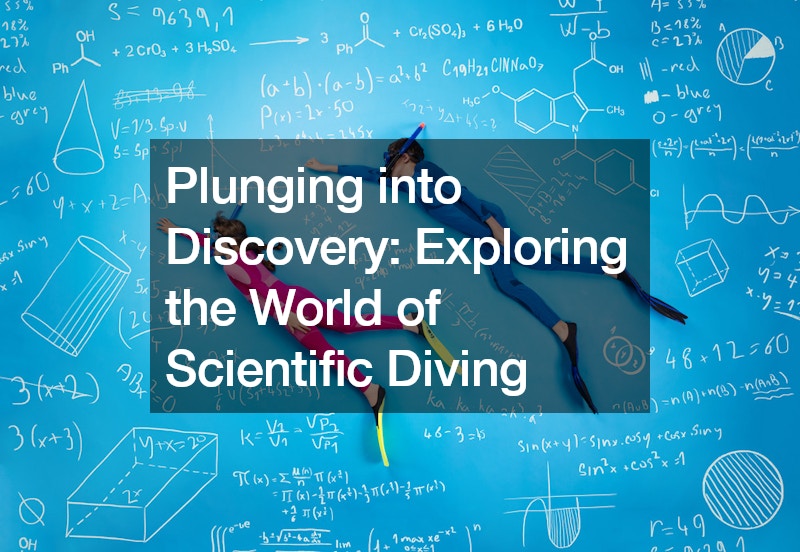
The underwater realm holds endless fascination, teeming with diverse marine life and hidden secrets. For those with a passion for both diving and scientific exploration, the field of scientific diving offers a unique opportunity to combine these interests. This specialized field trains certified divers to conduct research studies underwater, transforming them into citizen scientists who gather valuable data in this critical environment.
Scientific diving courses are typically offered by universities or research institutions and cater to certified divers seeking to elevate their skills and knowledge. These programs equip participants with the necessary expertise to navigate the underwater world for scientific purposes.
Unveiling the Wonders Beneath the Waves
So, what exactly does a scientific diver do? Their responsibilities can encompass a wide range of tasks, depending on the specific research project. Here are some examples:
Marine Biology Surveys: Divers may be tasked with conducting population counts of various fish species or studying specific marine organisms in their natural habitat. This data is crucial for understanding population health, ecosystem dynamics, and the impact of environmental changes.
Coral Reef Monitoring: The vibrant coral reef ecosystem faces numerous threats. Scientific divers play a vital role in monitoring coral health, studying bleaching events, and collecting data to inform conservation efforts.
Underwater Archaeology: Shipwrecks and submerged ruins offer a glimpse into the past. Scientific divers assist archaeologists in documenting and studying these underwater historical sites.
Water Quality Monitoring: Maintaining healthy water quality is essential for marine life. Scientific divers collect water samples from various depths to assess pollution levels and monitor overall water health.
Beyond the Breathtaking Scenery: The Demands of Scientific Diving
While the underwater world offers unparalleled beauty, scientific diving is not simply recreational scuba diving with a research twist. It requires a high level of skill, discipline, and mental focus. Here’s what sets scientific diving apart:
Advanced Training: Scientific diving courses build upon existing scuba diving science. Divers receive training in underwater navigation using compasses, data collection techniques, and emergency procedures specific to the research environment.
Multitasking Under Pressure: Unlike recreational diving, scientific divers must juggle multiple tasks simultaneously. Maintaining buoyancy, navigating accurately, and meticulously recording data all require focus while operating in a demanding underwater environment.
Safety and Situational Awareness: Safety is paramount. Scientific divers understand the importance of decompression limits, gas management, and maintaining constant awareness of their surroundings to ensure their own safety and the safety of their teammates.
The Rewards of Scientific Diving: A Career Path Less Traveled
Despite the challenges, scientific diving offers a multitude of rewards:
Contributing to Scientific Discovery: Data collected by scientific divers plays a crucial role in advancing our understanding of the underwater world. Their work informs conservation efforts, environmental protection strategies, and scientific research across various disciplines.
A Unique Career Path: For those with a passion for diving and a scientific mind, scientific diving can be a stepping stone to a rewarding career in marine biology, oceanography, or other fields related to the underwater environment.
Experiencing the Ocean Like Never Before: Scientific diving allows individuals to explore the underwater world in a meaningful way, fostering a deeper appreciation for the intricate balance of marine ecosystems.
Scientific diving offers a unique blend of adventure, scientific inquiry, and environmental stewardship. If you’re a certified diver with a thirst for knowledge and a desire to explore the underwater world for a greater purpose, then scientific diving might be the perfect path for you. It’s a challenging yet rewarding field that allows you to contribute to scientific discovery while experiencing the wonders of the ocean firsthand.
.



